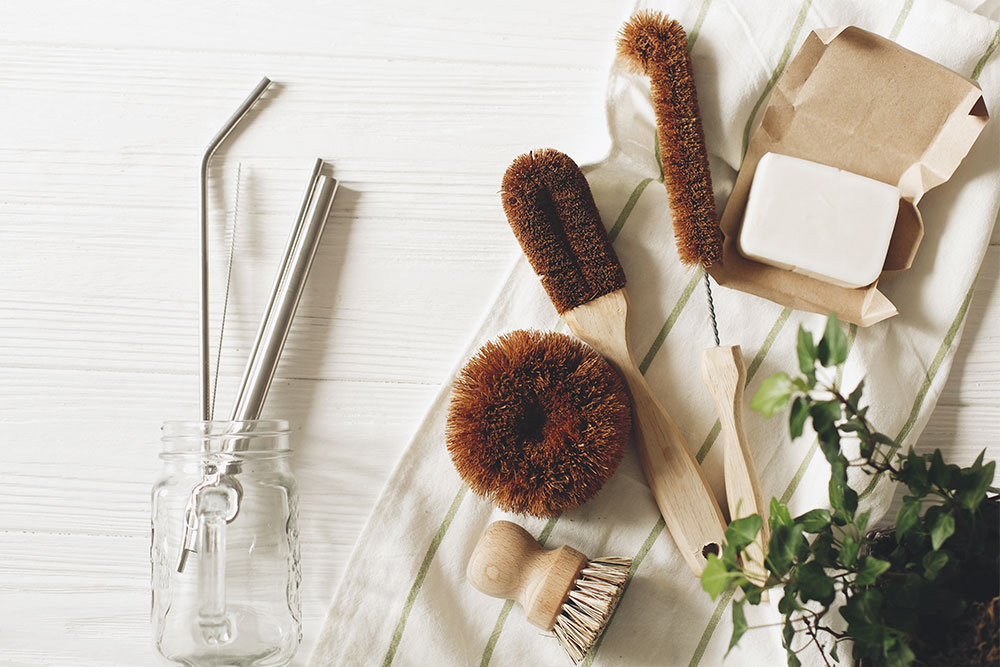How to live chemical-free

London has many benefits. There’s always a new vegan restaurant opening round the corner, places to go and people to see if you’re feeling social. But living in the capital has its downsides, too. Even the simple act of breathing city air exposes us to a huge load of toxins and, according to The World Health Organisation, every part of London exceeds the limit for average levels of airborne particulate matter. Sound depressing? Well thankfully, there are many simple things we can all do to live a more chemical-free existence.
PEST CONTROL
Organic food has been shown to be higher in nutrients, while conventionally-grown fruit and veg are often sprayed with fertilisers and pesticides. A quick look at the “dirty dozen” published by the Environmental Working Group (EWG) reveals more than 98 per cent of strawberry, spinach, peach, nectarine, cherry and apple samples tested positive for residue of at least one pesticide. Pin this list on the fridge and don’t go food shopping without it.
STEEL YOURSELF
Bisphenol A (BPA) and other chemicals in plastic bottles may cause hormonal imbalance and disrupt your endocrine system. Toxins which leak from plastic to water play havoc with our mood, energy and even fertility, and if that’s not enough to put you off plastic, every bit ever created still exists somewhere on this planet. Steel bottles don’t have the same problems…
ROUTINE PROCEDURE
Skin is our largest organ, and as much as 60 per cent of what’s applied to it gets absorbed, the good and the bad. It may be overwhelming to change the content of your entire bathroom in one go, so start with the products you use most often. Look for a fluoride-free organic toothpaste and opt for a deodorant without aluminium, parabens, artificial fragrance and other chemicals to protect, rather than block, the sensitive underarm areas.
SMALL DETAILS
Vitamins must be good for us, right? That’s not always the case if nasty excipients fill the capsule or hold the tablet together. Avoid artificial additives like titanium dioxide, talc and methacrylic acid. All of these and more can be found in everyday vitamin products which are widely available. A good rule to live by is if you wouldn’t want it on your plate, then there’s no place for it in your supplements.












